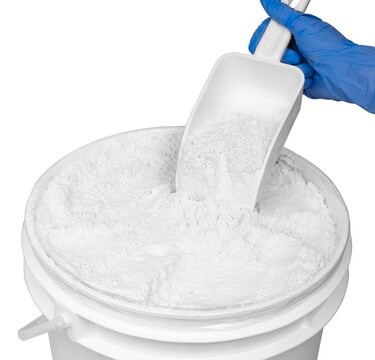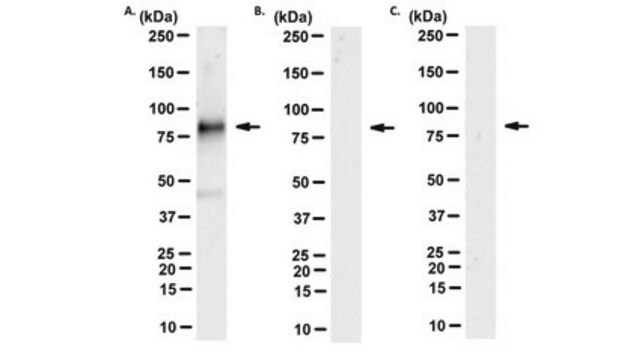MABF112
Anti-CD70 Antibody, clone TAN 1-7
clone TAN 1-7, from rat
Sinónimos:
CD70 antigen, CD27 ligand, CD27-L, Tumor necrosis factor ligand superfamily member 7, CD70
About This Item
Productos recomendados
origen biológico
rat
Nivel de calidad
forma del anticuerpo
purified antibody
tipo de anticuerpo
primary antibodies
clon
TAN 1-7, monoclonal
reactividad de especies
mouse
técnicas
flow cytometry: suitable
western blot: suitable
isotipo
IgG2aκ
Nº de acceso NCBI
Nº de acceso UniProt
Condiciones de envío
wet ice
modificación del objetivo postraduccional
unmodified
Información sobre el gen
mouse ... Cd70(21948)
Descripción general
Inmunógeno
Aplicación
Functional Blocking Analysis: A representative lot detected CD70 in splenic CD8a+ DCs (Arora, P., et al. (2014). Immunity. 40:105-116).
Inflammation & Immunology
Immunoglobulins & Immunology
Calidad
Western Blotting Analysis: A 1:500 dilution of this antibody detected CD70 in 10 µg of mouse spleen tissue lysate.
Descripción de destino
Forma física
Almacenamiento y estabilidad
Otras notas
Cláusula de descargo de responsabilidad
¿No encuentra el producto adecuado?
Pruebe nuestro Herramienta de selección de productos.
Código de clase de almacenamiento
12 - Non Combustible Liquids
Clase de riesgo para el agua (WGK)
WGK 1
Certificados de análisis (COA)
Busque Certificados de análisis (COA) introduciendo el número de lote del producto. Los números de lote se encuentran en la etiqueta del producto después de las palabras «Lot» o «Batch»
¿Ya tiene este producto?
Encuentre la documentación para los productos que ha comprado recientemente en la Biblioteca de documentos.
Nuestro equipo de científicos tiene experiencia en todas las áreas de investigación: Ciencias de la vida, Ciencia de los materiales, Síntesis química, Cromatografía, Analítica y muchas otras.
Póngase en contacto con el Servicio técnico







